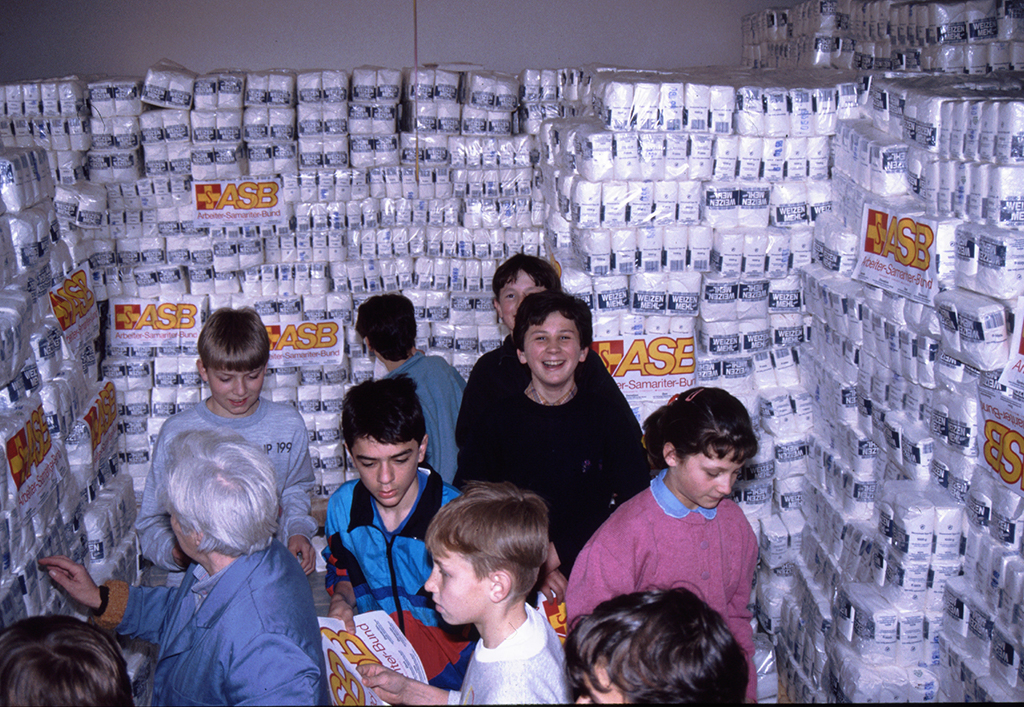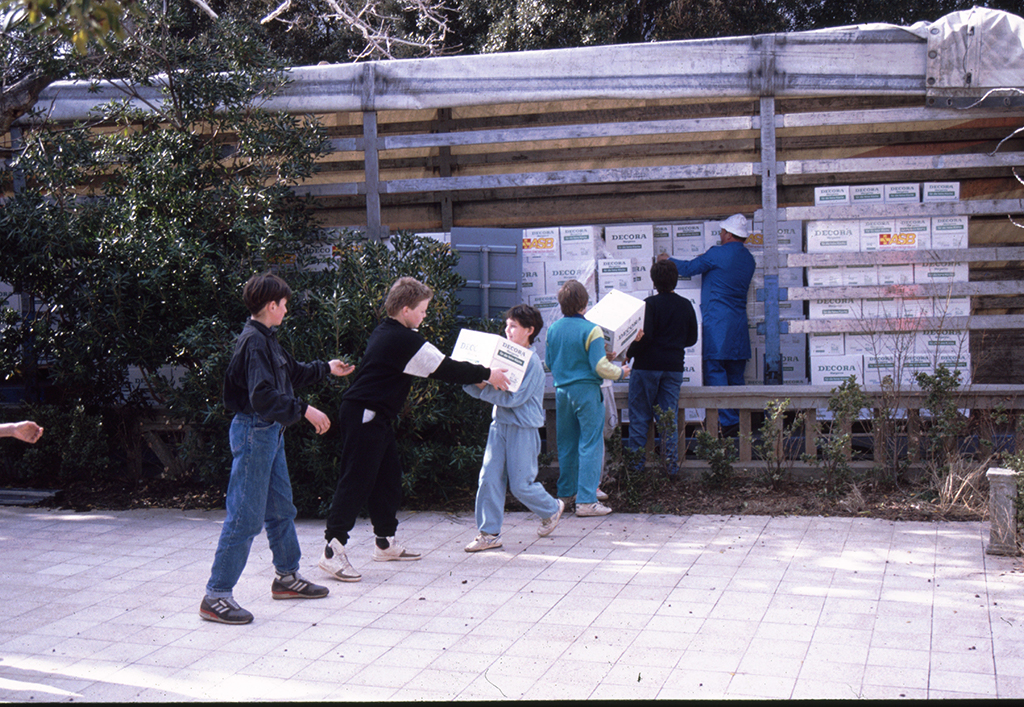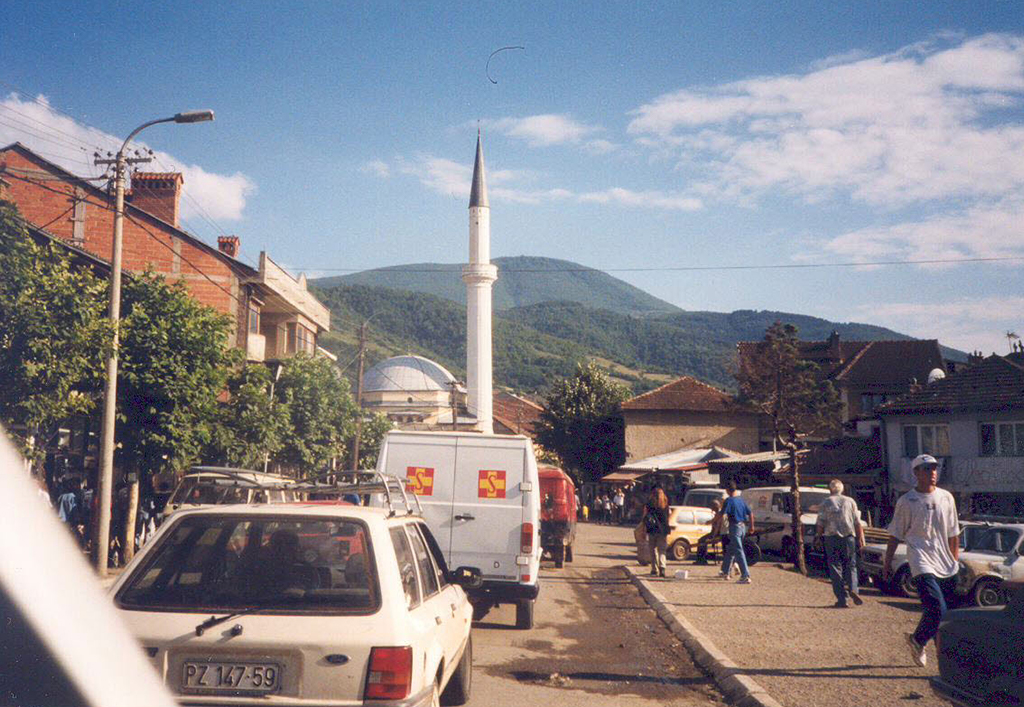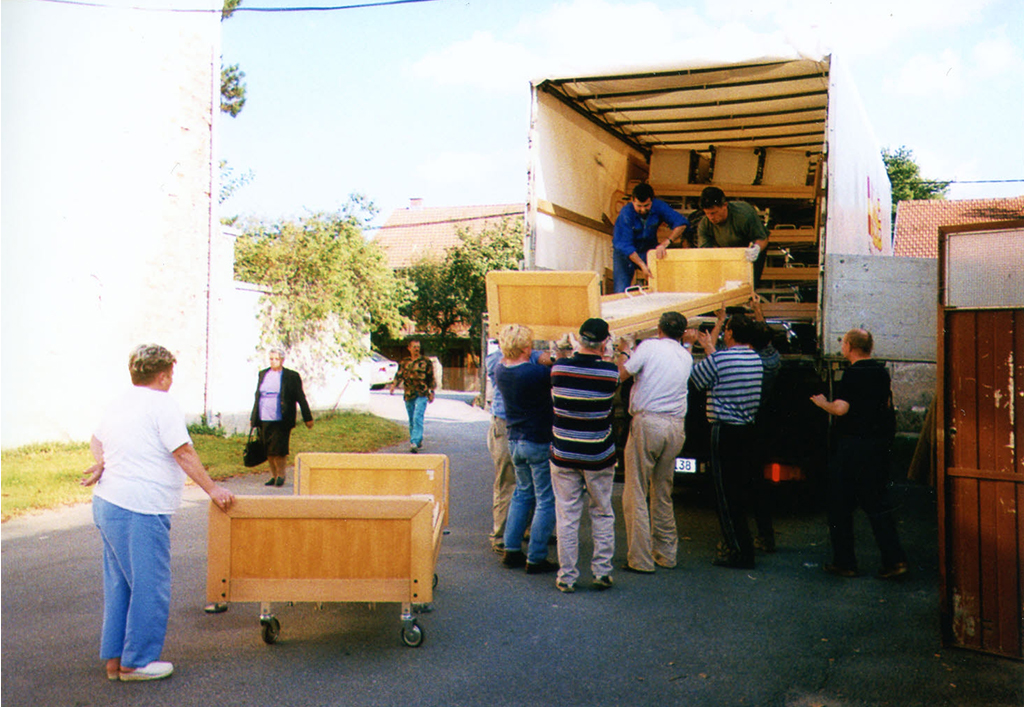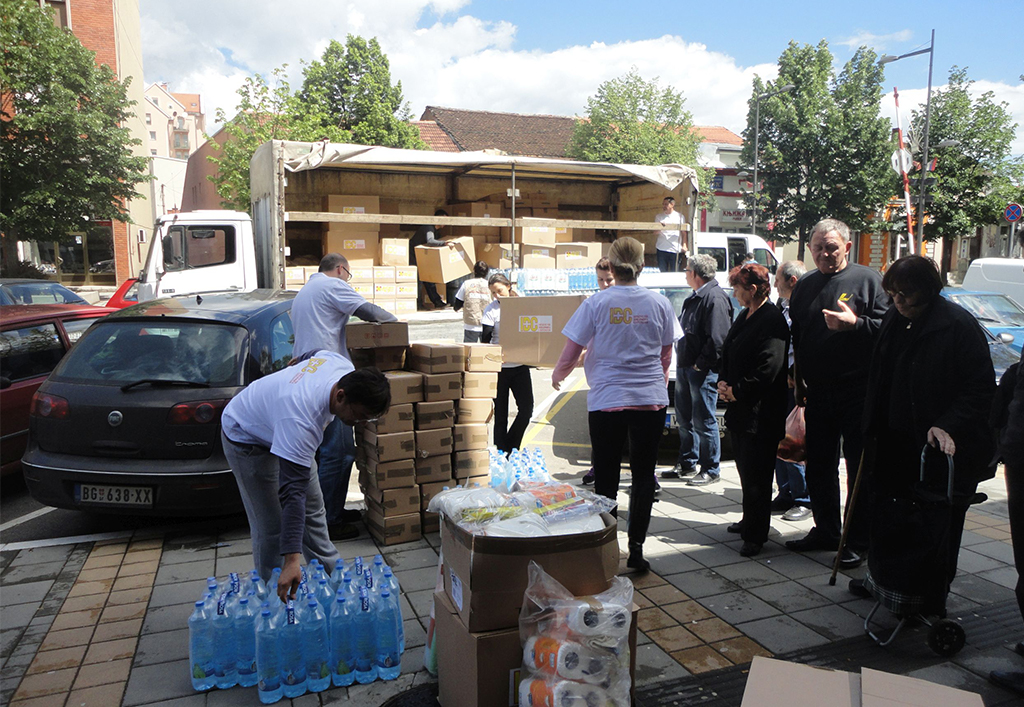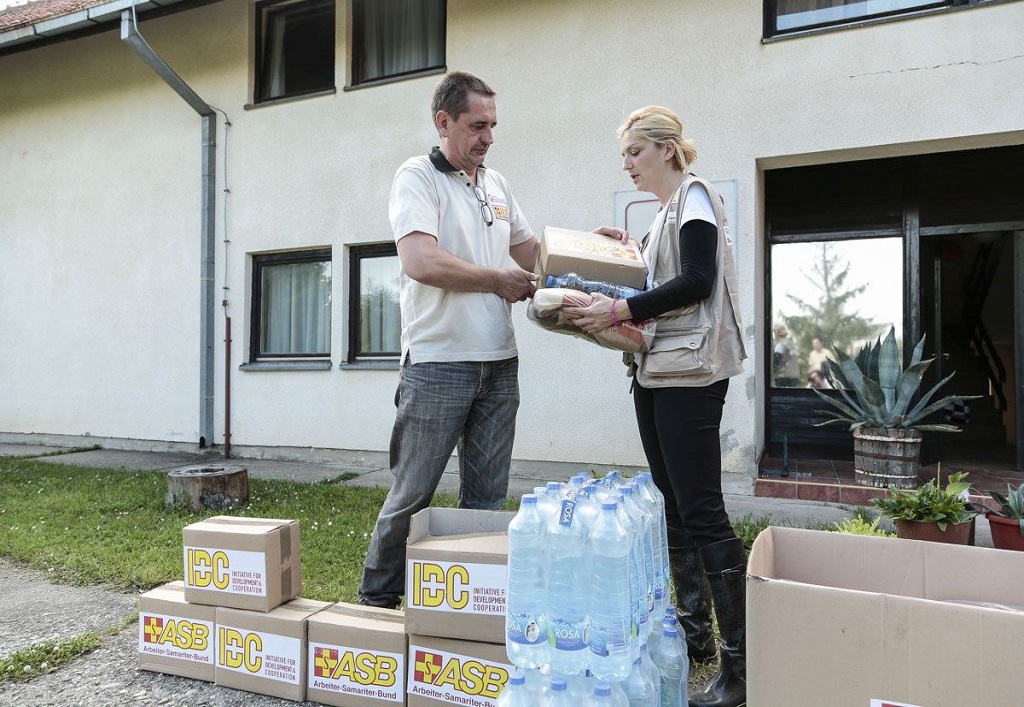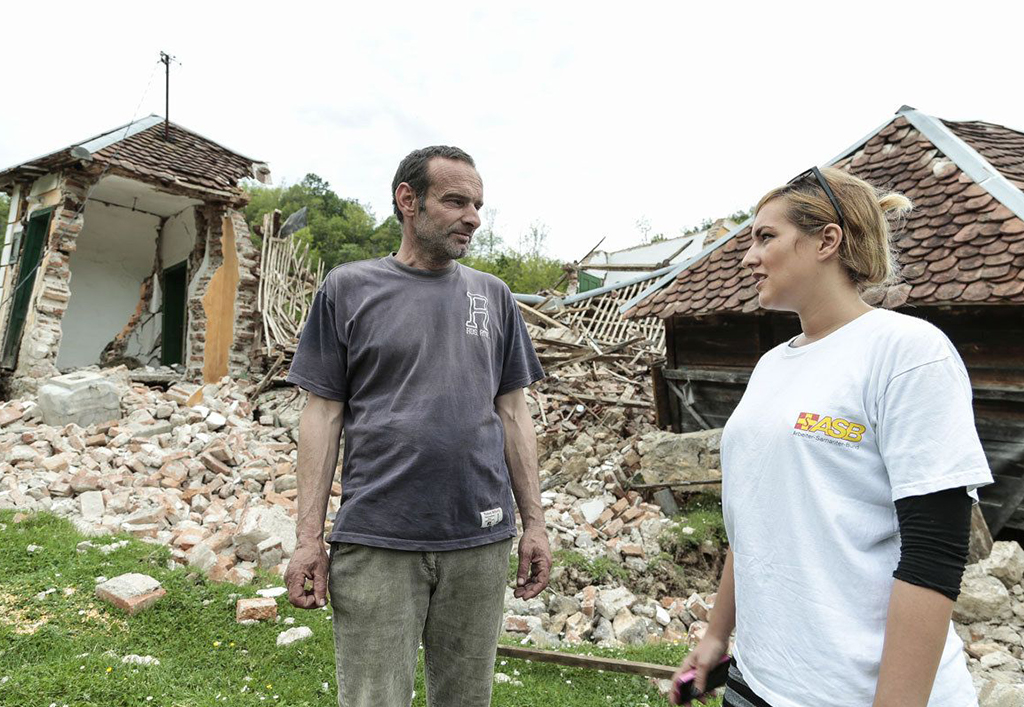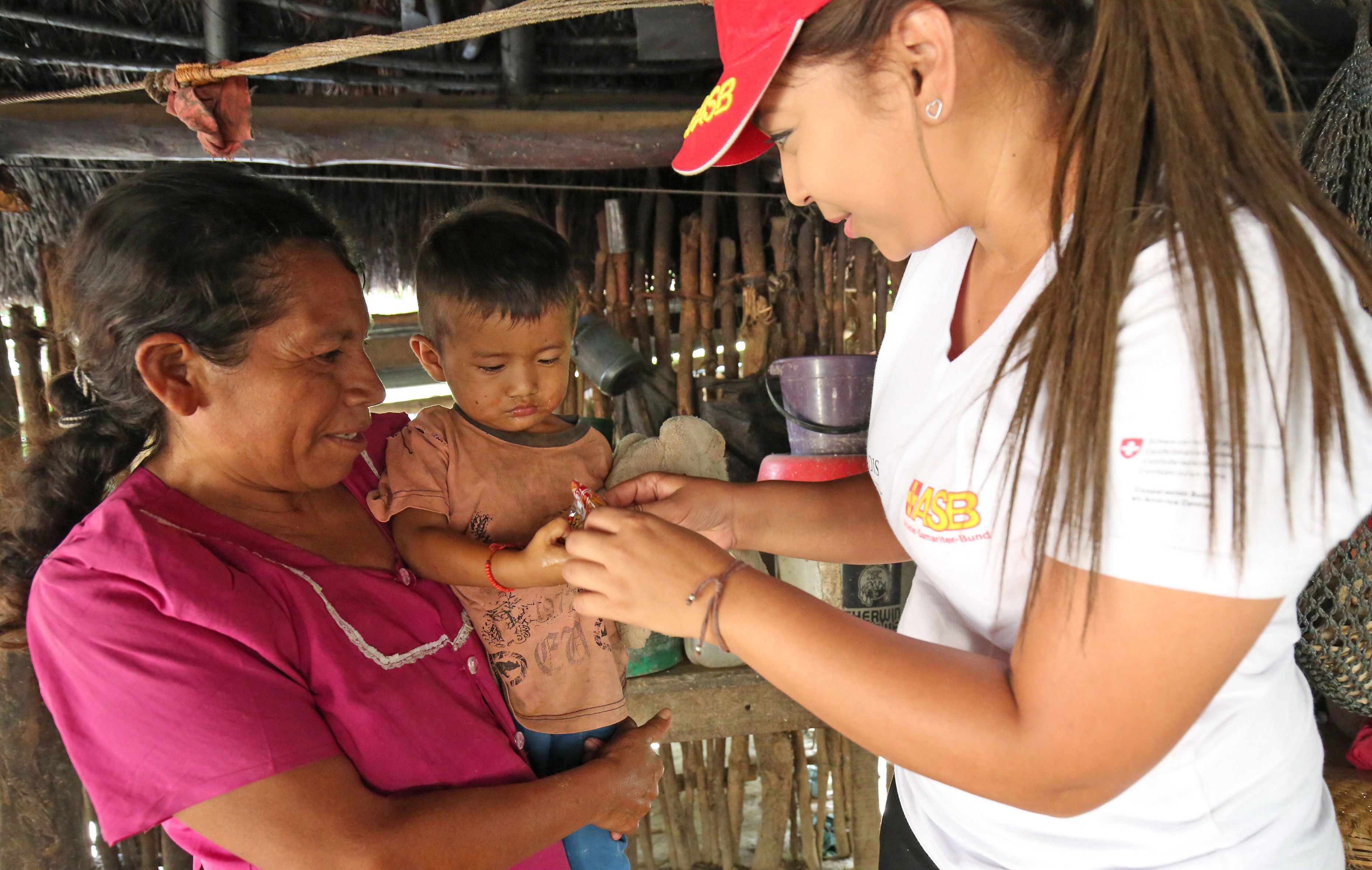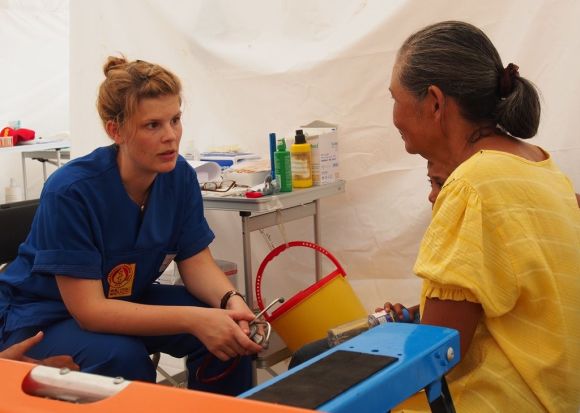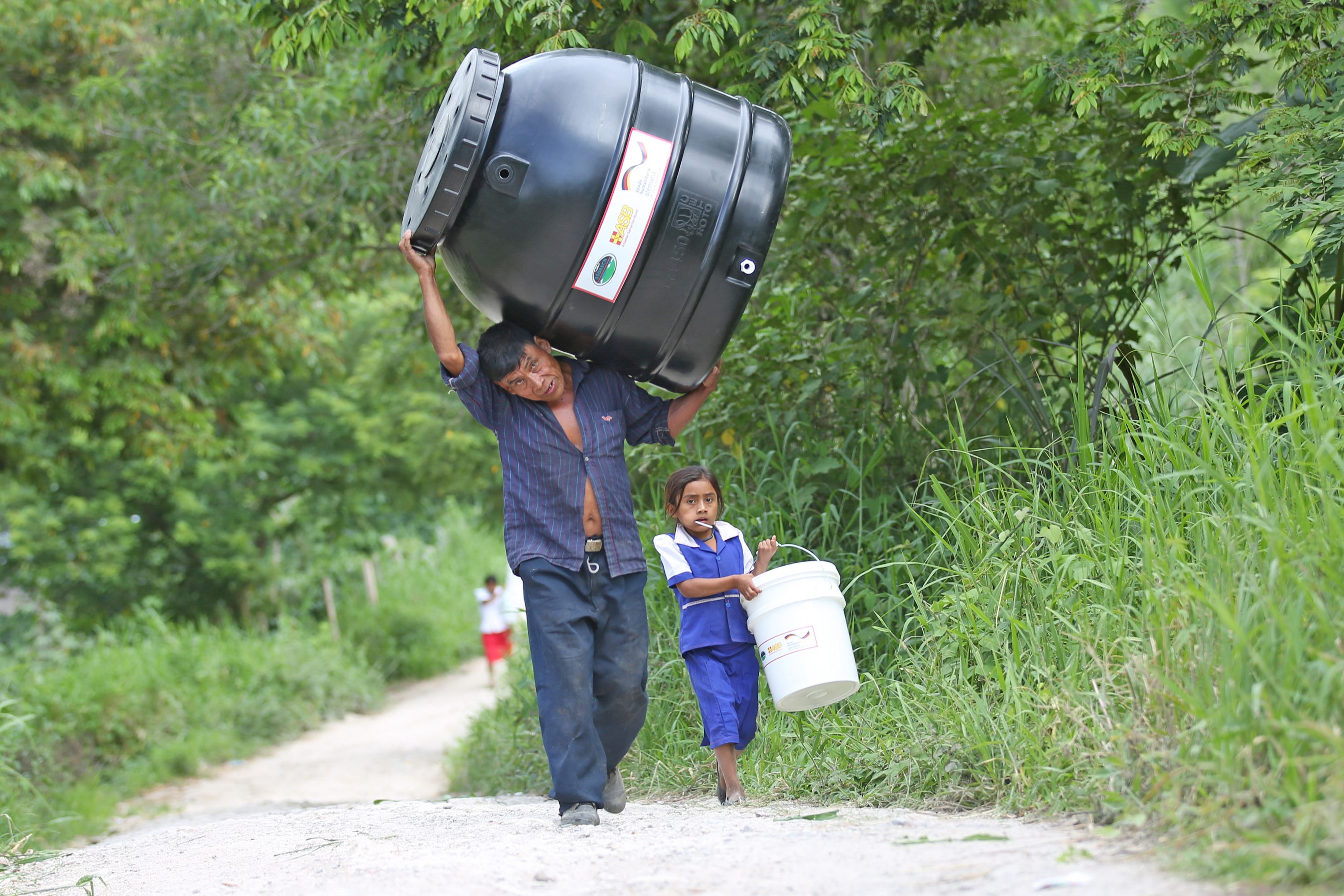
1991: ASB launches its humanitarian aid mission in the Balkans
After the breakup of Yugoslavia in 1991 and the beginning of the Yugoslav Wars, the ASB launched one of its longest humanitarian aid missions abroad. The ASB helped refugees, set up outpatient medical facilities and organised aid convoys. The first humanitarian convoys that went to the besieged city of Mostar in Bosnia and Herzegovina in 1992 bore the logo of the ASB.
Since then, the ASB has implemented over 350 humanitarian and development projects in the Balkans with a total volume of over 175 million euros. After the war, the ASB assisted with the reconstruction of power grids, bridges, water supplies, schools, kindergartens, etc. With the help of the ASB, more than 5,000 private homes in 237 communities in Southeast Europe were repaired or rebuilt.
In addition, the ASB carried out projects geared towards sustainable economic reconstruction, such as business start-up help for workshops and restaurants. The ASB also helped to better connect and strengthen the public, private, and civil sectors by providing training for government employees as well as players in the private and civil sectors. The training included continuing education courses on topics such as accounting, taxation or starting up businesses.
The ASB’s relief efforts in the Balkans always focus on vulnerable people, such as people with disabilities or marginalised groups. The ASB has been engaged in projects for return and reintegration, the socio-economic inclusion of marginalised groups, the strengthening of civil society in Southeast Europe, the integration of Roma and the promotion of Samaritan cooperation at the local level.
The ASB enjoys widespread recognition for its commitment. This is reflected in the wide range of donors who have provided the association with considerable funds for the implementation of numerous projects over the past 30 years, as well as in the resulting impact in the Balkan region. These donors include the European Commission, the Directorate-General for European Civil Protection and Humanitarian Aid Operations, the European Agency for Reconstruction, bilateral international donors such as the governments of Germany, the United States, the Netherlands, Belgium, Austria, Sweden, Norway, as well as bilateral regional donors such as the governments of Croatia, Bosnia and Herzegovina, Serbia, and Kosovo. In addition, the ASB receives donations from companies, private donations from citizens, and makes use of its own funds.
The ASB’s long-standing presence in the region has led to close and effective cooperation as well as open dialogue with national, regional and local authorities in the Balkans. Well-embedded and working closely with government decision-makers and civil society, the ASB has become a major player in the region when it comes to providing socio-economic assistance to people in need. The ASB’s offices in the Balkans regard this as a commitment to continue promoting results-driven, innovative ideas and initiatives. This may also contribute to the Western Balkan countries joining the EU at some point in the future.

